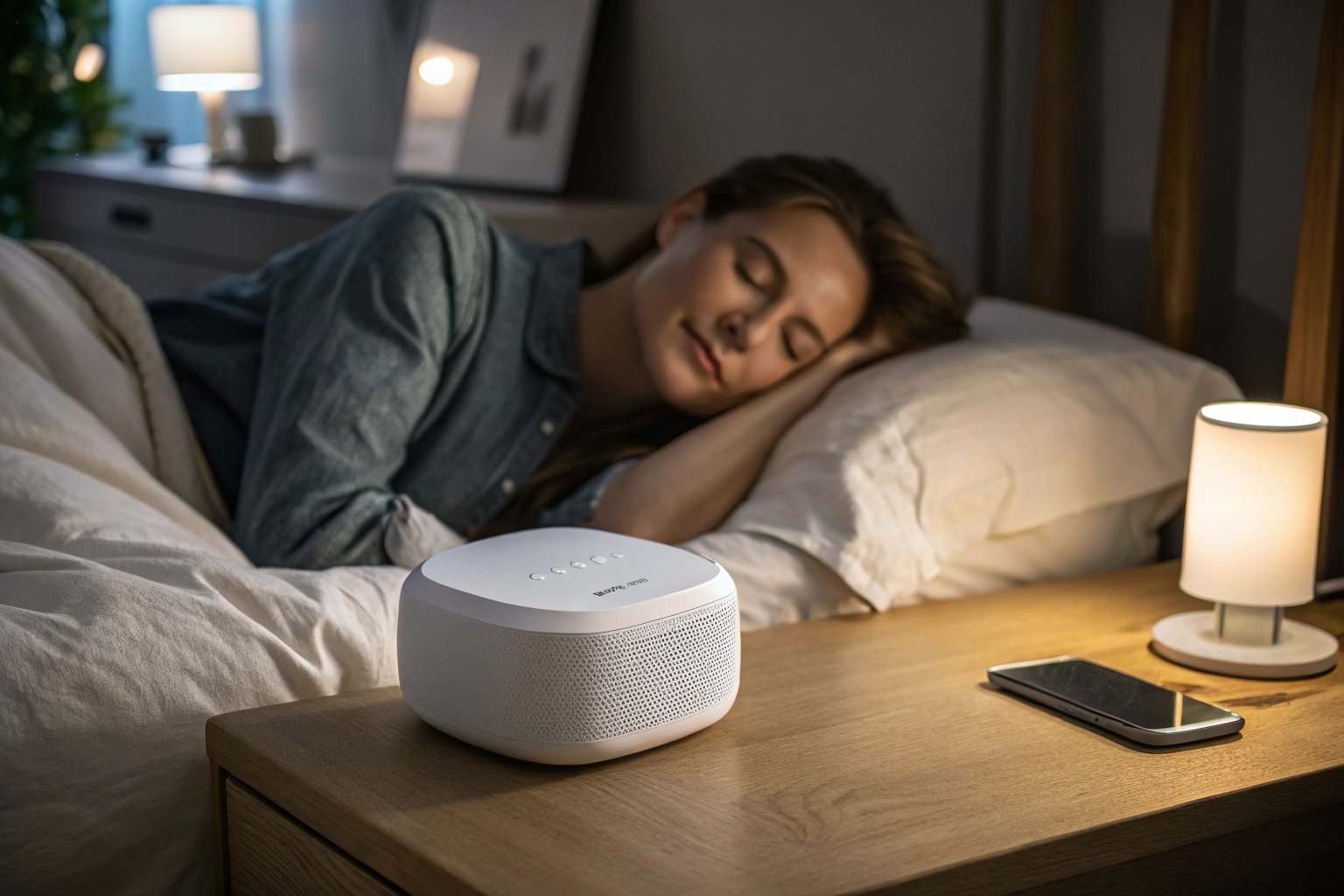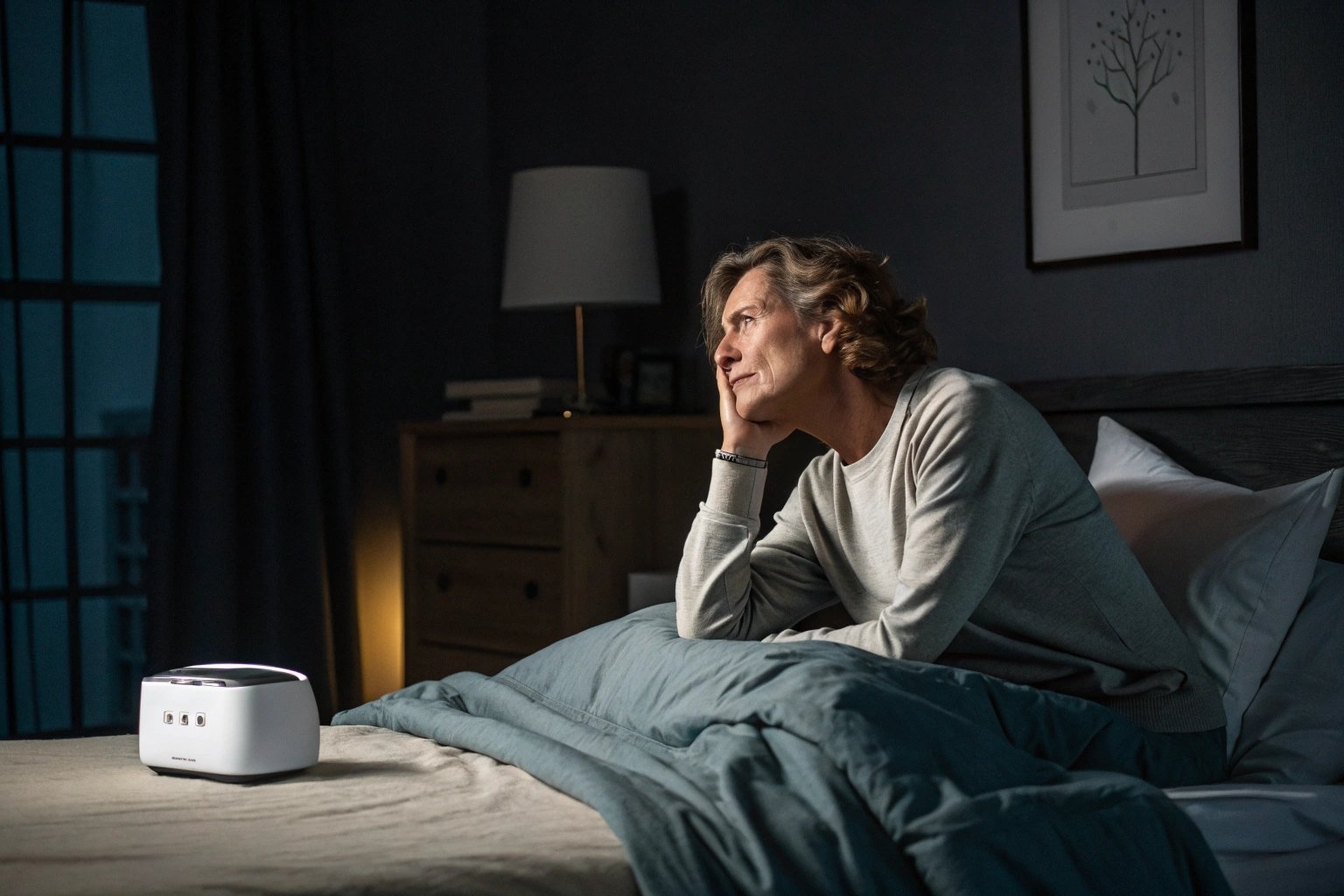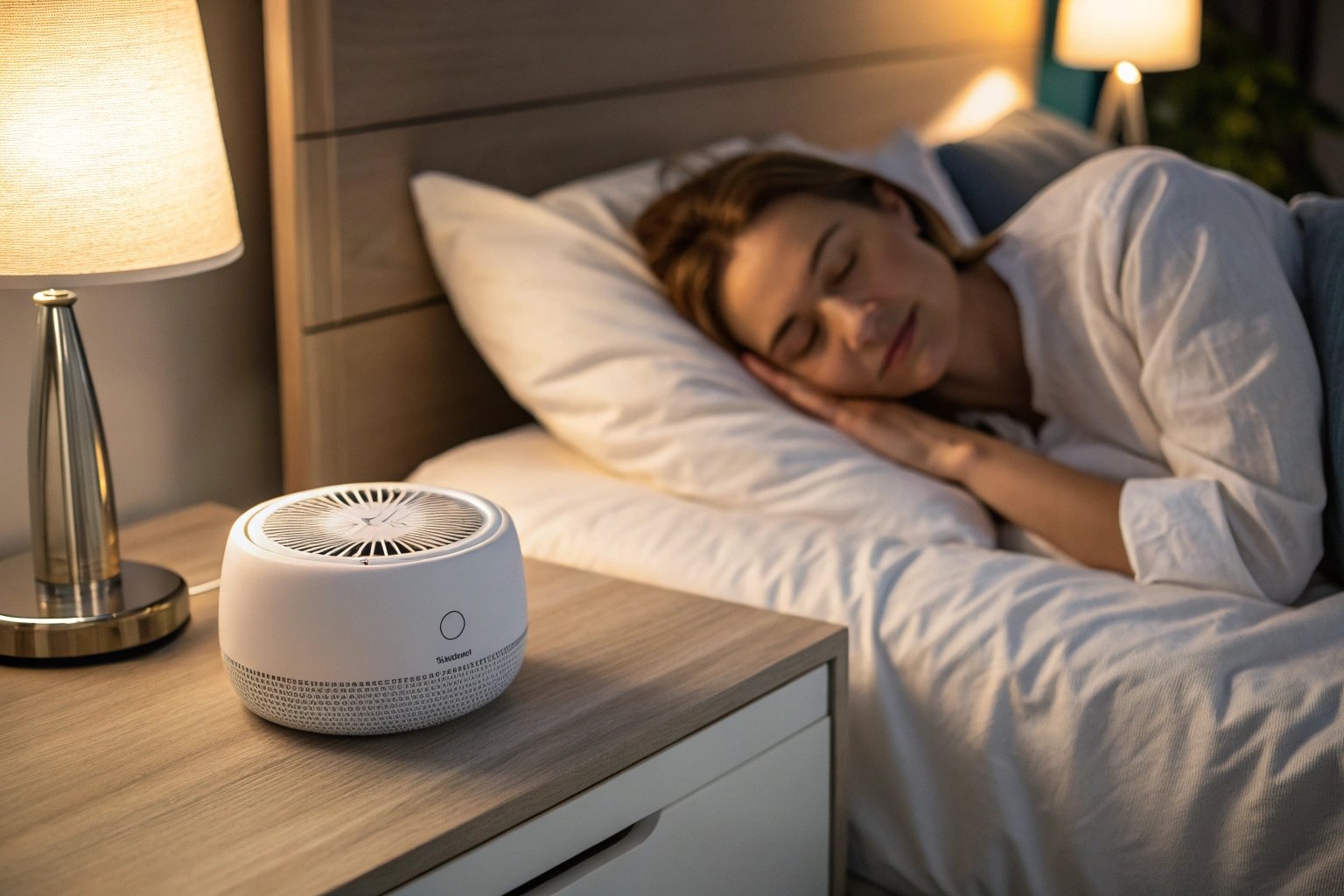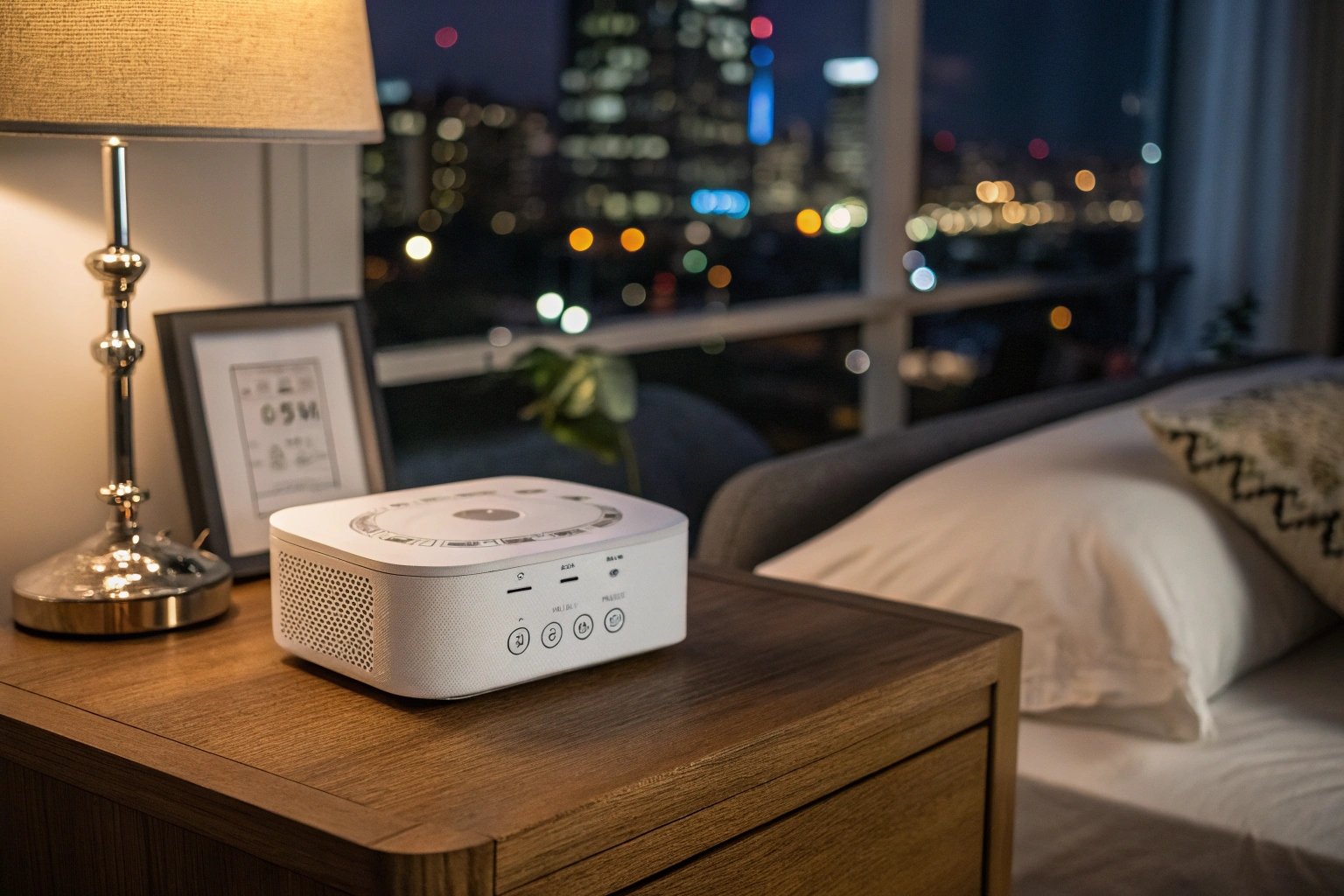Sleep disorders like insomnia can significantly impact your daily life, leaving you feeling fatigued, anxious, and unable to function at your best. While there are many treatments available, one effective and simple solution for improving sleep quality is white noise. But how exactly do white noise machines help with conditions like insomnia?

White noise machines work by creating a steady, calming sound environment that masks disruptive noises and helps signal to your brain that it’s time to relax and fall asleep. This can help break the cycle of insomnia and other sleep disorders.
In this article, we’ll explore how white noise machines can improve sleep for those dealing with insomnia, the science behind their effectiveness, and how to use them for the best results.
What is Insomnia and How Does It Affect Sleep?
Insomnia is a condition characterized by difficulty falling asleep, staying asleep, or waking up too early and not being able to get back to sleep. This sleep disorder can lead to poor sleep quality, leaving individuals feeling tired, irritable, and unable to concentrate during the day. Insomnia can be caused by various factors such as stress, anxiety, lifestyle choices, or underlying medical conditions.

The inability to sleep well often leads to a vicious cycle where anxiety about not getting enough rest makes it even harder to fall asleep. This is where white noise machines can be helpful.
White noise helps break this cycle by promoting relaxation and creating a stable, soothing sound environment. It masks background noises that might otherwise cause distractions or disruptions, such as traffic, loud neighbors, or snoring. This consistent sound can prevent sudden noise interruptions, allowing you to focus on relaxing and preparing for sleep.
How White Noise Machines Improve Sleep

White noise machines work by generating a steady, unvarying sound across a wide range of frequencies. This creates a constant auditory environment that helps drown out external noises, making it easier to fall asleep and stay asleep.
The sound of white noise is similar to the hum of an air conditioner or a fan, which many people find comforting and soothing. This sound serves as a gentle background that promotes relaxation and signals to the brain that it’s time to wind down.
For those with insomnia, the ability to block out disruptive noises is essential for falling asleep. White noise masks external sounds like street traffic, talking, or household activity, allowing the brain to relax without reacting to disturbances. This helps individuals enter a deeper, more restful sleep and can make the transition to sleep much smoother.
The Science Behind White Noise and Sleep
The benefits of white noise for sleep disorders like insomnia are grounded in the science of how the brain processes sound. The brain is naturally sensitive to sudden changes in noise, which can trigger a stress response. When unexpected sounds occur—like a door slamming, a dog barking, or a siren passing by—it can disturb the brain's ability to fall into a relaxed state, hindering the transition into sleep.
White noise, on the other hand, provides a constant and predictable sound that the brain learns to ignore. This consistent background noise creates a "sound barrier" that masks abrupt noises, allowing the brain to stay in a calm, relaxed state. Over time, the brain becomes conditioned to associate the sound of white noise with sleep, making it easier to fall asleep quickly and stay asleep.
Studies have shown that listening to white noise can improve sleep quality by reducing the number of awakenings during the night. This is particularly beneficial for people with insomnia, who often wake up multiple times throughout the night due to disruptive noises. White noise helps maintain a stable sleep environment, increasing the likelihood of uninterrupted rest.
White Noise and Anxiety Reduction
One of the common causes of insomnia is anxiety. Worrying about the inability to fall asleep or stressing about an upcoming day can keep you awake, making it difficult to unwind. White noise machines not only mask external disturbances but also help calm the mind by promoting relaxation.

The consistent, soothing sound of white noise helps lower the brain's alertness to surrounding noises, allowing the body and mind to de-stress and focus on sleep. This calming effect can reduce anxiety levels, making it easier to relax before bed.
As a result, white noise can be a great tool for managing the anxiety that often accompanies insomnia. By providing a predictable, soothing sound environment, it can help break the anxiety-sleep cycle and promote a more peaceful sleep experience.
How to Use White Noise Machines for Insomnia
To maximize the benefits of a white noise machine for insomnia, it’s important to use it properly. Here are a few tips for getting the most out of your white noise machine:
- Choose the right sound: Most white noise machines offer various sound options, including white noise, fan noise, and nature sounds. Experiment with different sounds to find the one that’s most soothing for you.
- Set the right volume: The volume of the white noise should be loud enough to mask external disturbances, but not so loud that it becomes intrusive or disruptive. A moderate volume is usually ideal.
- Use it consistently: For best results, use the white noise machine every night. Consistency helps your brain associate the sound with sleep, making it easier to fall asleep over time.
- Position the machine correctly: Place the white noise machine a few feet away from your bed, preferably closer to the source of disruptive noises (like a window facing the street). This ensures that the sound fills the room evenly without being too overwhelming.
Conclusion
White noise machines are a simple yet effective tool for managing sleep disorders like insomnia. By creating a consistent sound environment and masking disruptive noises, white noise helps calm the mind, reduce anxiety, and promote restful, uninterrupted sleep. If you’re struggling with insomnia, incorporating a white noise machine into your bedtime routine could be the key to a better night’s rest—feel free to contact us to explore the best options for your needs.

